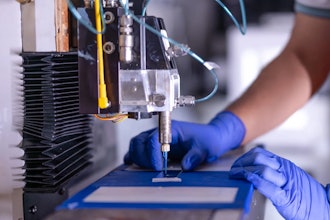It’s been several years since much of America has fallen under the spell of the Edison bulb — the trendy lightbulb that goes hand-in-hand with today’s standard hipster décor comprised of bronze industrial fixtures and reclaimed barn wood.
But the Edison bulb offers more than just style: these vintage-looking bulbs come with LEDs, meaning they’re more efficient — and last longer — than bulbs equipped with actual old technology … so the combination of look and function has catapulted Edison lightbulbs to such popularity that they are now a billion-dollar industry.
But they might be on the verge of becoming more expensive, and that’s because UC-Santa Barbara is saying that its scientists actually invented the technology, and that everyone under the sun has been infringing on their patent by selling them.
The university’s legal team is calling this a “groundbreaking patent enforcement campaign,” and centers on the technical term for a new generation of light bulb technology known as filament LED, where the glowing filaments are visible behind the glass. The new tech is said to last years longer than traditional bulbs, and UC-Santa Barbara wants to be compensated for their contribution to improving sustainability.
But it’s not quite so simple. Since most of the bulbs are being produced overseas, the university is actually going after the retailers who sell them once they’re on U.S. soil, and these include Amazon, Target, Ikea, Walmart and Bed, Bath & Beyond.
The university hopes to establish licensing agreements with the retailers and also secure what it deems reasonable royalties. They also want the U.S. International Trade Commission to issue “cease and desist orders to prevent retailers from importing and trafficking in these products without UC’s permission.” Outside of the ITC complaint, lawsuits have been filed against the aforementioned five retailers.
The university’s legal team says that the overall goal of the suit is “to ensure that UC’s patent rights are respected so it can reinvest in education and research to create more world-changing technologies.”






















